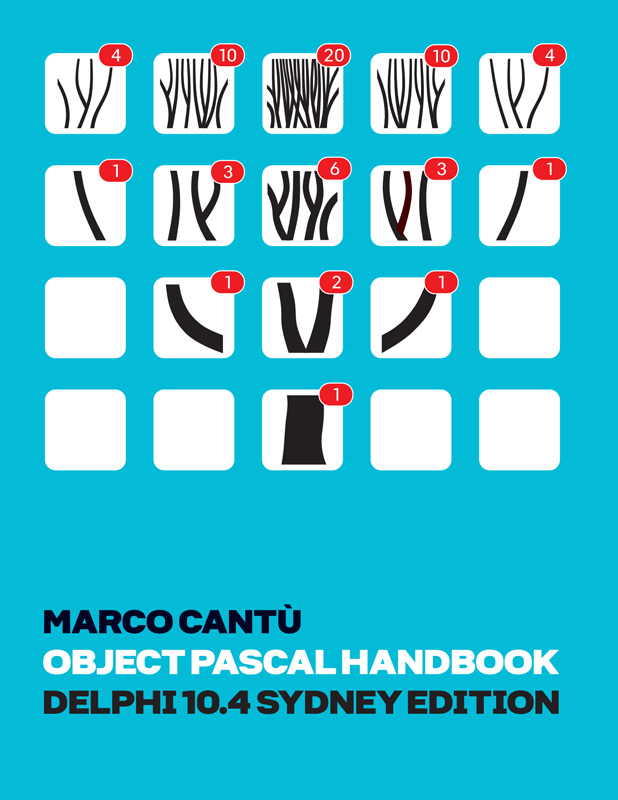
Hello C++ developers, last week we had Coding Bootcamp 2023 by Embarcadero, and Summer Code Fest 2023 by Whole Tomato, and even in heavy weeks like that, Ian Barker still kindly reviews my posts as we both try to keep adding new articles for you. Our educational LearnCPlusPlus.org web page is growing thanks to you, and we have many new readers, thanks to your support. The site features posts which are great to learn the features of modern C++ compilers with very simple explanations and examples. In this round-up of recent articles, we explain the multi-threading features of modern C++ along with other useful methods for developers.
In modern C++, multi-thread operations have evolved amazingly since C++11, and still, there are new improvements in the latest standards to enhance multi-thread operations further. The Concurrency Support Library is designed to solve problems that arise with multi-thread operations and this week we have some examples of multi-threading in C++.
We explain the very useful multi-threading class std::thread with very simple examples that everyone can use with their functions, and we explain how we can use lambda expressions with std::thread in C++ with examples. C++11 adds atomic types and operations to the standard and we explain what is atomic type in C++. C++11 introduced new forms of literals using modified syntax and semantics to provide User-Defined Literals (UDL) also known as Extensible Literals and we explain how to use user-defined literals. C++11 standard improved the previous C99 standard feature __func__ and in the last post today we explain how to use user-defined literals.
Table of Contents
Where can I learn C++ with a free C++ compiler?
If you don’t know anything about C++ or the C++ Builder IDE, don’t worry, we have a lot of great examples on the LearnCPlusPlus.org website and they’re all completely free. Just visit this site and copy and paste any examples there into a new Console, VCL, or FMX project, depending on the type of post. We keep adding more C and C++ posts with sample code. In today’s round-up of recent posts on LearnCPlusPlus.org, we have new articles with very simple examples that can be used with:
- The free version of C++ Builder 11 CE Community Edition
- or a professional version of C++ Builder
- or free BCC32C C++ Compiler and BCC32X C++ Compiler
- or the free Dev-C++
Read the FAQ notes on the CE license and then simply fill out the form to download C++ Builder 11 CE.
How to use modern C++ with C++ Builder?
In modern mathematics, physics, and computer science; optimized and faster app development in programming is very important to speed up computations. CPUs and GPUs are highly evolved by the number of cores and transistors to give more computational power to today’s servers and computers. Thus, we can use more cores and threads in our applications by using std::thread. We can use the std::thread class in multi-thread operations, and in the first post pick, we explain how to use std::thread and how can we use it with modern C++ examples.
Lambda Expressions allow users to write an inline expression that can be used for short snippets of code that are not going to be reused and don’t require naming in your C++ app. The lambda expressions construct is introduced in C++ 11 and further developed in the C++17 and C++20 standards. In modern C++ development, they are very useful and can be used with std::thread in multi-thread operations. The std::thread class is a special class defined in <thread> header in the concurrency support library that comes with C++11. We can use the std::thread class in multi-thread operations with lambda expressions. In the next post, we explain how to use a Lambda expression with std::thread in C++ with examples.
C++11 adds atomic types and operations to the standard. Atomic types and operations provide a way of writing multi-threaded applications without using locks. In the next post, we explain what is std::atomic and how we can use atomic types efficiently in modern C++.
C++11 introduced new forms of literals using modified syntax and semantics in order to provide User-Defined Literals (UDL) also known as Extensible Literals. Using user-defined literals, user-defined classes can provide new literal syntax and they can be used with the operator "" to combine values with conversion operators. In other post, we explain how to use user-defined literals in modern C++.
Modern C++ has a lot of features that can be used in professional programming. C++11 standard improved the previous C99 standard feature __func__ which is a predefined identifier for functions or methods. The predefined identifier __func__ returns as a string that contains the name of the enclosing function or method. In the last post, we explain how we can use predefined identifier __func__ in modern C++.
How to learn C++ for free using C++ Builder?
LearnCPlusPlus.org has been producing full of educational daily articles about C and modern C++ that can be used with C++ Builder, C++ Builder CE, Dev-C++, BCC Compiler and some other compilers such as the GCC compiler. Here are our post picks for today.
Learn To Use Predefined Identifier __func__ In C++
https://learncplusplus.org/learn-to-use-predefined-identifier-func-in-c/
We like to hear your feedback. You motivate us so much with your likes and comments on social media (find us on Facebook, LinkedIn, Reddit, Twitter / X and all over) and here on the blogs too. Thank you for your valuable comments and questions. All of them help improve the quality of our future posts and new code in these posts.
We have a lot of unique posts waiting to come. We keep adding new topics every week about C++ in general and specific topics for C++ Builder, Dev-C++, and for the other C++ compilers. Please keep following our LearnCPlusPlus.org website for the latest posts and updates. Feel free to comment and share with your colleagues, students, members – knowledge is power, and knowledge shared is empowering.
What is new in C++ Builder 12?
C++Builder 12 brings some massive improvements. Join us for a sneak peek behind the scenes, showcasing in-development tech in two major areas: the enhanced Clang toolchain and Visual Assist integration. Uncover massive improvements across RTL, STL, debugging, and more.
August 31 at 10 AM CST. Save your seat: https://bit.ly/BehindtheBuild-RAD-CBuilder-12

What might be next for C++ Builder?
According to David Millington’s post, C++ Builder is aiming to include some amazing features; CLANG v15, support for C++20 and a lot of C++23 features, Win64 primary OS, new code completion, Visual Assist C++ navigation and refactoring, and lots more.
Note that Embarcadero announced the release of RAD Studio 11 Alexandria Release 3, also known as RAD Studio 11.3, along with Delphi 11.3 and C++Builder 11.3. This release is focused on quality and improvements, building on the great new features in RAD Studio 11 Alexandria three previous releases.

C++ Builder is the easiest and fastest C and C++ IDE for building simple or professional applications on the Windows, MacOS, iOS & Android operating systems. It is also easy for beginners to learn with its wide range of samples, tutorials, help files, and LSP support for code. RAD Studio’s C++ Builder version comes with the award-winning VCL framework for high-performance native Windows apps and the powerful FireMonkey (FMX) framework for cross-platform UIs.
There is a free C++ Builder Community Edition for students, beginners, and startups; it can be downloaded from here. For professional developers, there are Professional, Architect, or Enterprise version.
Design. Code. Compile. Deploy.
Start Free Trial Upgrade Today
Free Delphi Community Edition Free C++Builder Community Edition





